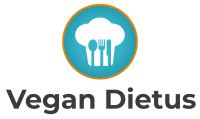If you’re like many Americans today, you’ve wondered about kosher foods. What does kosher mean? You find the labels on foods packed around the supermarket, but perhaps you are not exactly sure what a kosher certificate entails.
What’s Kosher Food? And Kosher Diet Strategies
Kosher food is meant to be pure and safe for ingestion. As it grows more challenging to distinguish clean versus depriving foods nowadays, perhaps adhering with some kosher diet might be useful?

With the dramatic changes in the food industry over the past 50 decades, eating a kosher diet has gotten more complicated. About 60% of the average American’s daily energy intake comes from ultra-processed meals. Consumers are losing faith in their own food choices, particularly as the farming and processing of meals are becoming big business.
It is no wonder that the kosher food market was gaining popularity. Americans see kosher foods as reliable, and it is a far cry from how they perceive the food industry. Together with the kosher stamp on a package, it certifies that food is really what it claims to be. What exactly does kosher mean? What makes something a kosher food, and how do you follow a kosher diet plan? Let us answer these questions.
What Exactly Does Kosher Mean?
What does kosher mean? The word kosher is used to describe food and beverage that complies with Jewish religious dietary law. Jewish people believe that God commanded them to keep kosher, so they’re linking with God by fulfilling his command.
They also feel that God had commanded it since it will benefit both their bodies and souls to consume within this pure way. So, what does kosher mean to get a Jew? After these guidelines, it usually means the diet of religious nourishment for your Jewish soul, and it’s designed to bring purification and refinement into the Jewish people.
The expectation is that when the kosher observance is powerful, so is a Jewish person’s spiritual individuality.
For food to be kosher, the manufacturing process must meet kosher needs and then be approved by a kosher auditor. To get a kosher product to be accredited, every ingredient, additive, and processing aid used in manufacturing should also be kosher. No non-kosher foods May Be Used from the production lines or with the same equipment as kosher meals.
Foods
Particular kosher definitions explain what foods are considered kosher. Here’s a rundown of the kosher purpose for each food group
1. Meat and Poultry
Not all bird or animal meat is considered kosher. Animals that are considered kosher include cows, goats, and cows, but pigs — frequently processed horse, horse and rabbit are not kosher foods.
2. Dairy
It’s required that dairy products come from kosher animals. Since milk in the United States is guaranteed to be from kosher animals by law, some Jewish authorities allow milk products to be considered kosher without the need for full-time kosher supervision.
For dairy products to be contemplated, Cholov Yisroel, a Jewish supervisor, must be present from the milking towards the close of the processing to make sure only kosher animals are used to produce the milk. Even Though non-kosher critters are located, if a cow is being milked, it cannot be considered Cholov Yisroel.
Rennet is a complex of enzymes that is generated in the stomachs of animals. It is commonly used to separate milk into solid curds for cheesemaking. Since rennet is an animal origin, the production of cheese has to be supervised to be considered kosher
3. Eggs
Eggs have to be from kosher birds (such as chicken, turkey, Cornish hens, ducks, and geese), and they can’t have some bloodstains, which is considered unclean.
4. Fish
To be considered kosher food, fish must have scales and fins, and they need to be removed without tearing the fish skin. Shellfish are considered fish you should never eat. Cases of non-kosher fish contain all shellfish, eels, shark, monkfish, huss, and monkfish. Fish oil and other fish derivatives should also be out of kosher fish.
Selecting kosher fish can be confusing because it is expected that fish are not labeled correctly or tagged as overall, common names instead of noting the particular species name. There’s also the issue of cross-contamination once the fish are captured and processed. It is essential to buy kosher fish from a trustworthy source who is knowledgeable about kosher requirements for all these reasons.
Diet Strategies
There are three sorts of kosher foods: beef, dairy, and pareve. Each food group fits into the kosher diet guidelines and demands specific preparation and handling to be considered kosher.
The Torah states, “you might not cook a young creature from the milk of its mother,” declaring one of the main principles of what it means to become kosher. After a kosher diet, meat and dairy products have to be entirely split — this is the principle called kashrut. Meat and dairy products Can’t be cooked or consumed together; also, in a kosher kitchen, there are different preparation areas, dishes, utensils, and cookware for meat and dairy, so the two food groups never come together
Meat
Meat includes any creature and its byproducts, like meats, bones, soup, and soup. To consume meat beneath kosher guidelines, it has to come from a kosher animal and be slaughtered, drained, and examined based on kosher requirements. Meat must also be salted to remove the blood.
There are strict rules that have to be met in animals’ slaughter so that meat to be considered kosher. It’s believed that the laws regarding the particular method of slaughter were given to Moses on Mount Sinai. The first rule is that the only men and women who can participate in animals‘ slaughter for food have to be educated about the laws and receive written consent from a rabbinical authority.
The slaughter of animals (known as shehitah) must be accomplished quickly, with a sleek cut of a sharp knife with no dents or imperfections. The amount must be completed by severing the trachea and the esophagus, cutting off the air into the lungs. You will find improper processes that must be prevented when slaughtering an animal, including hesitation or delay while drawing the knife, excessive strain, burrowing the knife throughout the cut, cutting outside the specified area, or massaging the region without killing the creature because the blade was not sharp enough.
Once the animal dies, certain forbidden fats and veins have to be removed, and the meat has to soak in a tub in room temperature water for 30 minutes. To pull the blood, the saturated beef is then put on particular salting tables at which it is salted on either side for a single hour.
When an animal isn’t adequately slaughtered or dies from other causes, such as illness, it isn’t fit to eat and can’t be considered kosher. In case the slaughtering process fails to abide by these guidelines, the Jewish authorities will reject the meat.
Dairy
Any food containing milk is known as dairies, such as milk, yogurt, butter, and all cheese. Dairy products have to come from a kosher animal, processed with kosher equipment, and cannot contain any meat derivatives.
Pareve
Pareve describes foods that are not composed of milk or meat to be eaten with either a food group under the kosher diet plans. Fruits and vegetables must be carefully scrutinized for insects and washed correctly, as pests are strictly non-kosher. Pareve foods shouldn’t be processed with dairy or meat meals, and any processed or packaged pareve foods should have a trusted kosher certification.
The processing and manufacturing of dried or fresh grape products, such as juice and wine, must be supervised and handled solely by Jews to allow them to be considered kosher. Grape products ought to have a kosher certification
Bread
Bread and bread items should have two degrees of kosher certification. To be considered kosher, bread ought to be baked by a Jewish man at a kosher home or kosher bakery or roasted by a non-Jewish professional baker with the Jewish government’s oversight. This is vital because many bakeries in the United States utilize dairy products in their bread. Some bakeries additionally grease their pans with animal fats, which can not be done to the bread to be considered kosher.
Along with this, under product regulations, additives like whey do not have to be announced on the packaging whenever they are only Utilized in small quantities, so even though the bread is non-kosher, the components listed on the item make you believe otherwise.
Fruits and Vegetables
All fresh, whole fruits and vegetables, as well as herbs, are considered kosher, as long as they’ve been carefully analyzed for insects. This is particularly crucial for vegetables that are tough to examine for insects, such as broccoli and cauliflower; buying fresh florets can be helpful in such cases.
Canned, jarred, packaged, or freeze-dried fruits and veggies should be labeled kosher or signify that they aren’t made with artificial flavors or colors. Frozen fruits and vegetables are generally considered kosher. However, veggies Which Are more difficult to check for insects (such as broccoli, Brussels sprouts, spinach, lettuce, mustard greens, and asparagus) Ought to Be thawed and assessed further
Passover
For Passover, Jewish men and women prevent eating chametz or food that contains some quantity of barley, wheat, rye, oats, and spelled that has leavened or fermented. Many Jewish communities also refrain from what is called kitniyot, including legumes or pulses such as corn, rapeseed, peanuts, legumes, soy, and rice. For Passover, Jews must also be sure to use separate dishes, utensils, or cookware than what’s typically used for grains.


